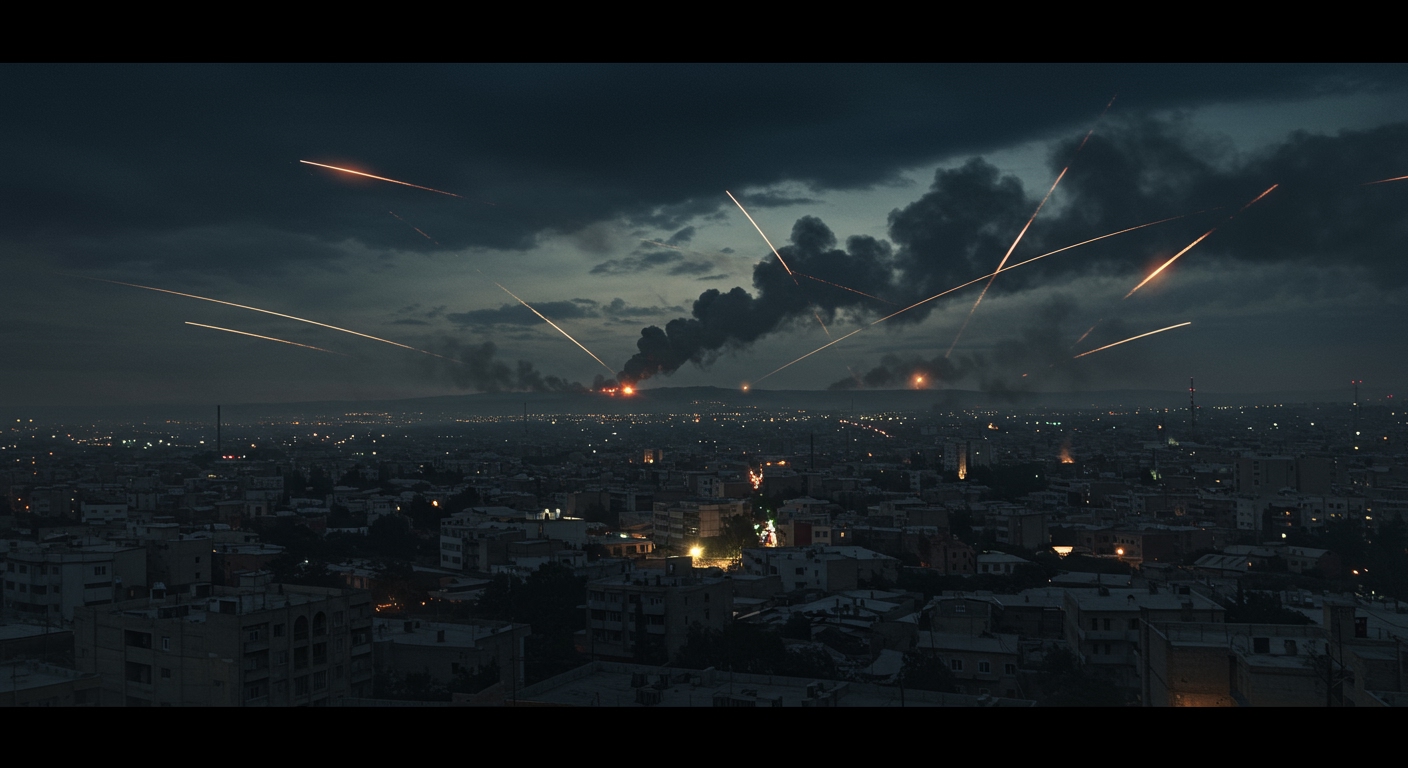JERUSALEM/TEHRAN – Tensions between Israel and Iran dramatically escalated on Tuesday, June 24, 2025, as Israel’s Defence Minister Israel Katz ordered “intense strikes” on Tehran. The directive came with accusations from Israel that Iran had violated a previously brokered truce agreement.
The ceasefire, mediated by the United States and Qatar, was intended to de-escalate a conflict that has seen significant casualties and regional instability. However, the fragile calm appears to have shattered, leading to renewed military action and reciprocal accusations.
Israeli Accusation and Order for Strikes
Defence Minister Israel Katz issued the stark order for intensified military action against the Iranian capital. According to statements from the Israeli defence establishment, the decision was a direct response to perceived breaches of the US and Qatar-brokered truce by Iranian forces. The precise nature and targets of these “intense strikes” were not immediately detailed, but the focus on Tehran signals a significant escalation in Israel’s operational objectives.
The Israeli government’s position is that Iran’s actions necessitated this response, framing it as a necessary measure to deter further violations and protect Israeli security interests.
Iran’s Denial and Readiness to Respond
In a swift and firm counter-response, Iran categorically denied violating the truce agreement. Tehran’s top security body issued a statement asserting that Iranian forces were prepared to respond decisively to any Israeli violations.
The Iranian government maintained that any actions taken by its forces were defensive or retaliatory in nature and did not constitute a breach of the negotiated ceasefire. This conflicting narrative highlights the deep distrust and volatile dynamics underlying the current conflict.
Recent Escalation: Missile Attacks Detailed
The order for strikes on Tehran follows a period of intense cross-border hostilities. Earlier on June 24, Iran launched multiple missile volleys targeting Israel. These attacks resulted in casualties, with at least four deaths reported in the southern city of Beersheba. The nature and origin of these missile attacks remain points of contention, but their impact in Beersheba underscores the direct threat faced by Israeli civilian populations.
The previous evening, on June 23, Iranian forces had also targeted a US military base located in Qatar. This base houses American troops and is a key strategic installation in the region. Iran stated that this attack was conducted in retaliation for US actions the day prior, specifically citing US attacks on Iranian nuclear sites. This particular incident illustrates the broadening scope of the conflict, drawing in international forces and raising concerns about regional stability beyond the immediate Israeli-Iranian confrontation.
The Mounting Human Toll
The conflict has exacted a heavy human price on both sides. According to figures provided by Iran, since Israel’s initial attack began on June 13, over 400 people have been killed. This figure reportedly includes 13 children, highlighting the tragic impact on civilian populations. Additionally, at least 3,056 people are reported to have been wounded in Iran since hostilities commenced on that date.
In Israel, the casualty count from Iranian strikes has also been significant, with at least 24 people reportedly killed in attacks attributed to Iran. These figures, though contested and difficult to verify independently in real-time, paint a grim picture of the escalating violence and its devastating effect on lives.
International Response and Concerns
The volatile security situation has prompted reactions from international bodies. The United Nations (UN) confirmed on June 24, 2025, that it would temporarily relocate some non-programme critical international personnel and their dependants out of Iran. This precautionary measure was taken due to mounting safety concerns and the unpredictable nature of the conflict.
The UN’s decision underscores the gravity of the situation and the risks posed to international staff and civilians caught in the crossfire. It also signals the international community’s growing alarm over the potential for further deterioration of security.
Outlook: Uncertain Future Amidst Mutual Accusations
The events of June 24, 2025, mark a dangerous turn in the ongoing confrontation between Israel and Iran. With Israel ordering intense strikes and Iran denying any truce violation while vowing a decisive response, the cycle of escalation appears set to continue.
The accusations of truce violations from both sides, coupled with the recent history of missile attacks and targeting of military and civilian sites, leave the prospect for de-escalation uncertain. The international community watches with concern as a conflict with significant regional implications deepens.





